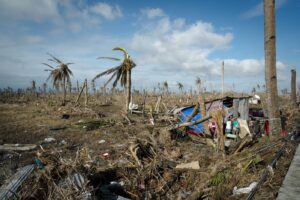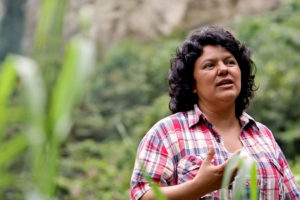Full Text:
[[{“type”:”media”,”view_mode”:”media_large”,”fid”:”334″,”attributes”:{“alt”:””,”class”:”media-image”,”height”:”316″,”style”:”width: 350px; height: 230px; float: right;”,”typeof”:”foaf:Image”,”width”:”480″}}]]
As a pillar of the post-2015 agenda, accountability is crucial in delivering a transformative framework for sustainable development, along with the sustainable development goals and the means of implementation. The UN Development Cooperation Forum (DCF) has an important role is shaping the renewed global partnership for development and delivering the global accountability mechanisms that will make sustainable development truly happen. But among various frameworks and global partnerships for development, the Global Partnership for Effective Development Cooperation (GPEDC) that was created in Busan stands out from other similar processes.
The GPEDC is a multi-stakeholder partnership where not only government and international organisations but including CSOs are considered as development actors in their own right. For GPEDC, the architecture of global accountability in development cooperation not only goes beyond government-centred approaches but is crafted in true multi-stakeholder fashion where actors collaborate and intersect at country and at international levels. GPEDC’s vision of global accountability is premised on the consolidation of existing country-level mechanisms with strong regional and global frameworks, matched with active multi-stakeholder participation, in order to maximise development results.
In contrast, UN bodies are mostly focused on intergovernmental methods of global accountability often sidelining other stakeholders in the process of shaping a global framework post-2015. The DCF is an exception because there is an avowed and genuine effort to bring other stakeholders especially CSOs, parliamentarians, local government and the private sector to the table. Nonetheless, while it has been successful in facilitating the establishment of national mutual accountability mechanisms, linking these to global processes remains a crucial challenge.
The principles of development effectiveness — such as democratic ownership (including the role of CSOs, parliaments and local governments), transparency and mutual accountability, inclusive development, human rights, and accountability to the people — should operate not only at the country-level, but in the international arena as well. A global framework based on mutual accountability, in this context, implies the essential role of international networks of development actors in ensuring that global mechanisms serve to support country processes of accountability. Thus regional and global networks of CSOs, parliamentarians, LGUs and private sector play crucial roles in ensuring that international accountability mechanisms deliver in supporting mutual accountability at country level.
A global mutual accountability mechanism is integral not only for the effective implementation of development goals, but also for the sustainability of country-led mechanisms. Such a system allows local development actors to seek support in holding international partners to account, whether in challenging or working with their own government. In other words, mutual accountability should not exclusively operate at the country level. Instead, it should be an essential building block of a post-2015 global accountability framework.
To ensure full accountability at a global scale, mutual accountability mechanisms require the full participation of international networks that represent parliaments, civil society organisations (including women’s organisations and trade unions), local governments, businesses and even international audit institutions. Furthermore, a global accountability mechanism must also be based on human rights obligations and should effectively utilise existing human rights monitoring mechanisms, as well as internationally-recognised principles like those emerging from Busan and the Istanbul Principles on CSO Development Effectiveness.
Mutual accountability serves as an essential principle for effective development cooperation as it holds all stakeholders accountable for progress and development effectiveness. But the intergovernmental approach of the UN and its processes in defining global accountability has so far been shielded under the premise of respecting the rights of sovereign states.
In essence, then, what makes the GPEDC far more advanced than the UN processes is the recognition of the premise that the principles of development effectiveness — in particular, respect for human rights and democratic processes — should operate at every level, for every stakeholder. Indeed, a new global development agenda backed by the strength of multiplicity of all development actors would benefit not only in shaping global accountability processes, but in promoting the democratic sovereignty of nations. ###



